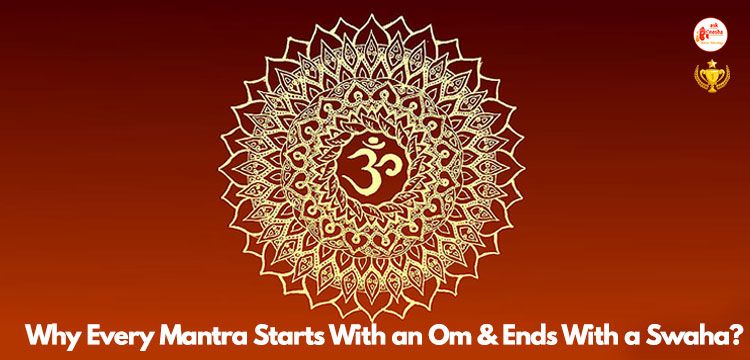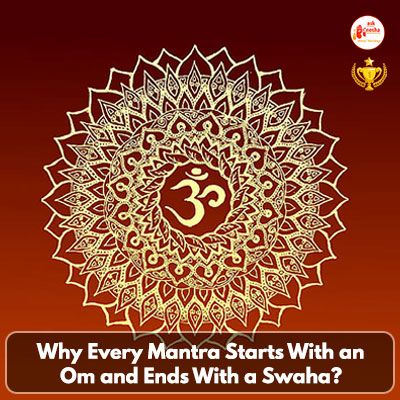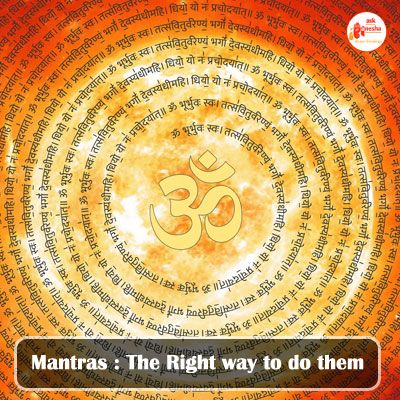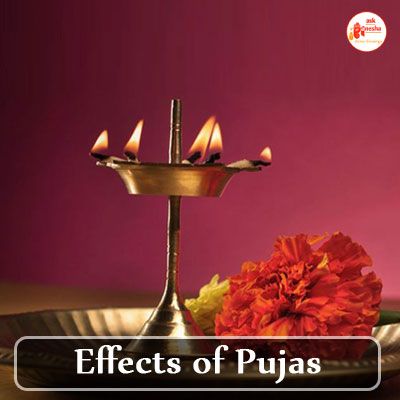Why Every Mantra Starts With an Om and Ends With a Swaha?
"Om" is considered to be a primordial sound in Hinduism and is often used as a sacred syllable or mantra. It represents the ultimate reality, consciousness, and the entire universe. On the other hand "Swaha" is often used as an offering to the gods in Hinduism. It is believed to signify surrender of one’s self to the divine. The use of "Swaha" at the end of a mantra is meant to indicate the completion of the offering or total sacrifice.
Therefore, the combination of "Om" and "Swaha" at the beginning and end of a mantra is believed to enhance the effectiveness of the mantra by invoking the power of the great universe and surrendering oneself to the divinity. However, it is important to note that the use of "Om" and "Swaha" may vary too. Te use depends on the specific mantra and tradition.
What is Om?
"Om" is a sacred sound and obviously a spiritual icon in Indian religions, including Hinduism, Buddhism, and Jainism. It is a special syllable that is considered to represent the ultimate reality, consciousness, and the vast universe as a whole.
In Hinduism, "Om" is regarded to be the sound present at the creation of the universe and is often used as a mantra in meditation, prayer, and chanting hymns. The sound of "Om" has a special vibration that can calm the mind and body and brings a sense of peace and harmony.
"Om" is written in Sanskrit as "à¥" and is pronounced as a single syllable. There are three sounds: "A-U-M" or "ah-oo-mm." Each sound represents a different aspect of the universe - "A" represents the creation of the universe, "U" focuses on the preservation of the universe, and "M" highlights the dissolution of the universe. Together, these sounds are believed to denote the cycle of existence and the ultimate reality.
What is Swaha
"Swaha" is a Sanskrit word too that is commonly used in Hinduism as a form of offering or sacrifice to the deities during a religious ceremony or a solemn ritual. It is often uttered in conjunction with the offering of ghee or other substances into the sacred fire known as a homam or havan or Yagna.
The word "Swaha" is derived from the Sanskrit word "swa," which means "self." When used in the context of a religious sacrifice, "Swaha" is meant to signify the giving away or surrendering of the self or one's possessions to the very divine.
During a homam or havan, the priest and the devotee typically offer substances like ghee, rice, or other grains into the sacred fire while chanting mantras. After each offering, they say "Swaha" as a way of dedicating the offering to the deities and expressing their willingness to surrender themselves to the divinity.
Is There any Astrological Link?
In Hindu astrology, “OM" is said to be associated with Jupiter, which is also known as Guru or preceptor of the Devatas or gods in Sanskrit. Jupiter is absolutely linked with knowledge, wisdom, and spiritual growth, and is believed to govern the higher lane of mind and the particular realm of the gods.
--------------
Whenever one is chanting a mantra in Sanskrit, it can be observed that the mantra always begins with 'Om' and ends withSwaha'. This particular alignment of words has a specific meaning to it, which is elaborated in the Dharma Shastra. According to the scriptures, Om is considered to be the ekaakshar Brahma, which means the creator and destructor of Nature. Therefore, 'Om' seems to be the ruler of the three properties which make up the world, according to the scriptures. Om is also seen as a symbol of Lord Ganesha, as when starting a prayer, it is Lord Ganesha who is remembered first. The significance of Swahaa comes out of a myth from Hindu mythology. Once, there was a shortage of food for Devas, and they approached Brahma to solve their problem. Brahma converted the offering made to the fire in yajnas into food for Deva but it didn't burn in Agni, thereby not being available to Devas. To resolve this, Brahma meditated upon Moola Prakriti and a Goddess appeared and asked what de desired. Brahma requested the Goddess to co-exist with Agni so that the offerings could be burned. He declared that it was only when the offering is made with the mantras ending in the Goddess name can it reach Devas. Incidentally, that Goddess was called Swaha.





















 Translate
Translate